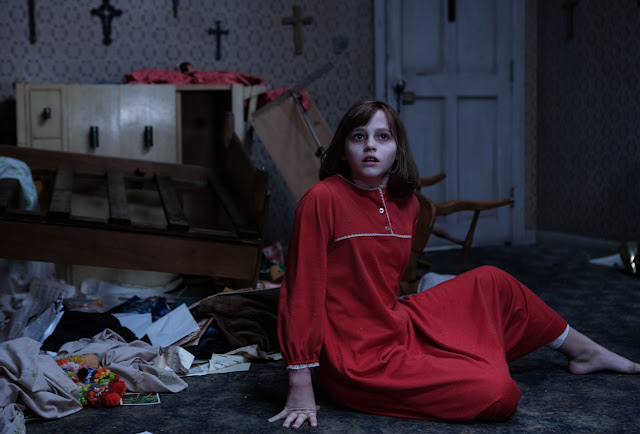“Stylish but emotionally disconnected.”
A fighter’s chin is used figuratively to express his ability
to endure physical assaults without being knocked unconscious. In boxing, the
term "glass jaw" refers to the vulnerability of the fighter to knockout punches.
In writer-director Noah Buschel’s modern-day noir film called Glass Chin, a boxer is tested outside
the ring. Cornered and framed, he must summon all his resolve to make the right
decisions, or else be knocked out by life’s bitter blows.
Bud “The Saint” Gordon (Corey Stoll), a one-time boxing champ, attempts to give another shot to glory by training new champions, taking particular interest to rising welterweight boxer Kid Sunshine (Malcolm Xavier). His other dream is to reopen his restaurant, a business once as thriving as his career. To fulfil them, he taps J.J. Cook (Billy Crudup), a rich, ruthless and gray-suited restaurant owner and loan-shark gangster, for financial support. The latter agrees, but in return, Bud must work for him as a debt collector.
Bud “The Saint” Gordon (Corey Stoll), a one-time boxing champ, attempts to give another shot to glory by training new champions, taking particular interest to rising welterweight boxer Kid Sunshine (Malcolm Xavier). His other dream is to reopen his restaurant, a business once as thriving as his career. To fulfil them, he taps J.J. Cook (Billy Crudup), a rich, ruthless and gray-suited restaurant owner and loan-shark gangster, for financial support. The latter agrees, but in return, Bud must work for him as a debt collector.
Everything goes well until a client turns up dead after a
late-night visit from Bud and J.J.’s high-strung henchman Roberto (Yul Vazquez). Using the footage of him entering the victim’s house, Bud is framed
for the murder. Unless he arranges for his trainee to throw away his upcoming
big match, J.J. is to release the video recording to the police. Bud turns to
his live-in girlfriend Ellen (Marin Ireland) for emotional support, but soon,
their relationship crumbles when he begins to hook up with Mae (Kelly Lynch), a
model and J.J.’s barmaid who shares a sexual history with Bud. Juggling between
conflicting priorities, Bud must decide wisely and hold out to the end.
In Glass Chin,
writer-director Noah Buschel executed a splendid way of story-telling through
his measured style and dead-end plot. It took time to build the tension, but
when it did, it stirred a torturously infinite feeling of helplessness and
desperation. Glass Chin also enabled
Buschel to show off his mastery in bringing out a visually and verbally
engaging film. He constantly uses deep and wide frames, with the actors looking
small but strategically placed against an emotional backdrop, such as the brick
wall on daylight and the deserted street during a night. He uses lighting and
light variations ingeniously, creating some kind of motion and dynamism. In
effect, his shots are like a parade of breathtaking still photos.
The film’s dialogues are right on punch, mostly
philosophical but at times poetic. There are moments when the actors speak
directly to the camera, giving us a sense of involvement. The scripts also gave
way to profound development of characters. As it appears, Bud tends to be
verbally abusive, not only to Ellen but to anyone as well, like the homeless
man who recognizes him on the street.
Stoll and Ireland both give a winning performance in the
movie. Being the main protagonist, Stoll has so much to work on and he
successfully delivers the proper emotion the moments require. Ireland also
stood out as his forbearing girlfriend, a perfect complement to Stoll’s
hard-boiled character. Perhaps, the shower scene between the two is the most
heart-breaking point in the movie. In naked vulnerability, Stoll breaks down
and cry to Ireland, a poignant image of a broken man in warm embrace as the
night time closes on them.
Despite its creative style of story-telling, the film
suffers from being too talky and slow-moving. It has technical brilliance but
the overall aura is not contagious or affecting. Its inconclusive final scene
may also put off viewers who simply want a clean and clear ending.
Glass Chin is the
type of film which is raved by critics but finds no connection to the general
audience. It’s like an abstract art which demands keener senses to appreciate
and understand its message and its pathos. It has no obvious beauty that’s
inviting and irresistible. Simply said, it is a well-crafted piece of art but
lacks the emotional appeal to engage the viewers.


























0 comments:
Post a Comment